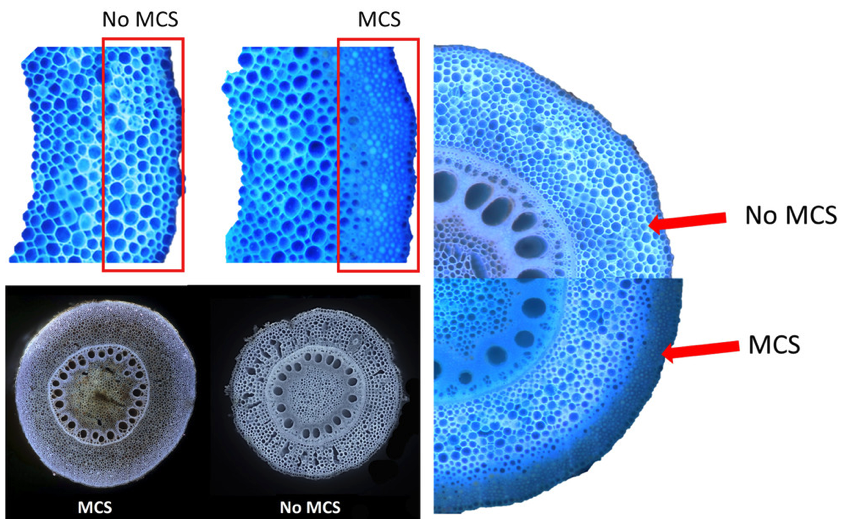A new project funded by United States Department of Agriculture/ National Institute of Food and Agriculture PIs: Jonathan Lynch, Hannah Schneider, Francisco Dini-Andreote

Maize genotype imaging
We have recently discovered that genotypic variation for root cortical anatomy in maize is associated with substantial variation in plant performance in dry, hard soils. Drought is a primary limitation to global crop production worldwide. The development of maize cultivars with enhanced drought tolerance and carbon sequestration through the construction of roots with more recalcitrant compounds is an important goal for global agriculture. As we show in this proposal, maize genotypes show substantial variation for TOCP (Thickened Outer Cortical Parenchyma) which is associated with greater root lignin content, better penetration of hard soil, and better plant growth under drought. The overall objective of this project is to evaluate and develop this trait as a tool to improve drought resistance and carbon sequestration in maize and in other crops. Specifically, we will: 1) confirm the physiological utility of the TOCP phenotype to improve plant water status and growth under drought in field and greenhouse environments, 2) identify genes underlying natural variation in TOCP and develop stocks that will support mechanistic assessment of its regulation and utility, and 3) evaluate the utility of TOCP for improved carbon sequestration from the atmosphere into deep soil domains. Defining and understanding traits enhancing drought resistance is of considerable importance for keeping U.S. agriculture competitive while ending world hunger.

